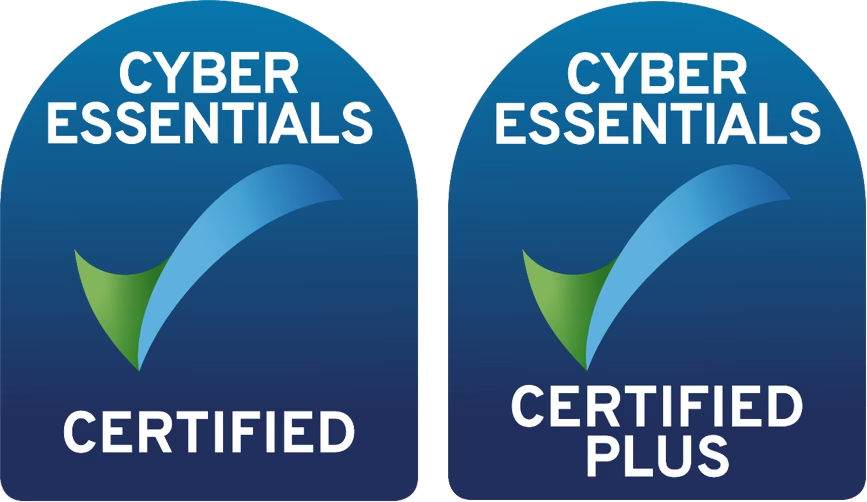The Importance of Cybersecurity Training for Employees
Cybersecurity is a critical concern for businesses of all sizes in the UK. With the increasing frequency and sophistication of cyber threats, it’s essential that employees are equipped with the knowledge and skills to protect against them. Implementing robust cybersecurity training for your staff is no longer a nice-to-have, but a necessity.
Employees are often the first line of defence against cyber attacks, and their actions can make or break an organisation’s security posture. By providing comprehensive cybersecurity training, you can empower your team to recognise and respond to potential threats, minimising the risk of data breaches, ransomware, and other devastating cyber incidents.
Investing in employee cybersecurity education demonstrates your commitment to safeguarding your business, your customers, and your reputation. It also helps to foster a culture of security awareness, where everyone understands their role in maintaining a secure environment. Don’t wait until it’s too late – make cybersecurity training a priority for your organisation today.
 Cyber security training for employees guide uk phishing- Speedster IT" width="1024" height="1024" class="aligncenter size-full wp-image-35319" /
Common Cybersecurity Threats Employees Need to Know About
Cyber security training for employees guide uk phishing- Speedster IT" width="1024" height="1024" class="aligncenter size-full wp-image-35319" /
Common Cybersecurity Threats Employees Need to Know About
As an employer, it’s crucial that you educate your staff on the most common cybersecurity threats they need to be aware of. From phishing scams to ransomware attacks, employees play a vital role in protecting your organisation’s data and systems.
Phishing Emails
Phishing emails are a common type of cyber attack that aim to trick the recipient into revealing sensitive information, such as passwords and credit card numbers. We can protect ourselves by being cautious of suspicious emails and verifying the sender’s identity.
What is a phishing email?
A phishing email is a fraudulent email that appears to be from a legitimate source and tries to trick the recipient into revealing personal information such as passwords, credit card numbers, or bank account details.
How to identify a phishing email?
Phishing emails often contain suspicious links or attachments, urgent requests for personal information, and poor grammar or spelling mistakes. It is important to carefully examine the email and verify the sender before taking any action.
How to avoid falling victim to phishing scams?
To avoid falling victim to phishing scams, it is important to never click on suspicious links or download attachments from unknown senders. It is also important to keep your software and antivirus programs up-to-date and enable two-factor authentication for added security.
Suspicious Links and Attachments
Phishing emails often contain suspicious links or attachments that could infect your device with malware or viruses. It’s important to avoid clicking on links or downloading attachments from unknown senders.
Urgent Requests for Personal Information
Phishing emails may contain urgent requests for personal information such as passwords, bank account details, or Social Security numbers. It’s important to be vigilant and never provide personal information via email or to unknown senders.
Impersonation of Someone We Know
Phishing emails may impersonate someone we know, such as a colleague or a friend, to gain our trust and trick us into providing sensitive information. It’s important to verify the sender’s identity and be cautious when receiving unexpected emails from known contacts.
Checking Sender’s Email Address
One way to identify phishing emails is to check the sender’s email address. Phishing emails often use email addresses that are similar to legitimate ones but contain slight variations or misspellings. It’s important to be cautious and verify the sender’s email address before responding to any emails.
Phishing remains one of the top attack vectors, with cybercriminals using sophisticated tactics to trick users into revealing sensitive information or installing malware. Social engineering is another major threat, where attackers manipulate people into performing actions that compromise security.
The best defence is a well-informed workforce. Provide comprehensive cybersecurity training to ensure your employees can identify and avoid these prevalent threats. With the right knowledge and vigilance, you can significantly reduce your organisation’s risk exposure.

Developing a Robust Cybersecurity Training Programme
Establishing a comprehensive cybersecurity training programme is essential for organisations seeking to safeguard their digital assets and foster a culture of security awareness. By equipping employees with the necessary knowledge and skills, you can significantly reduce the risk of data breaches, phishing attacks, and other cyber threats.
When designing your cybersecurity training curriculum, it’s crucial to cover a wide range of topics, from basic security hygiene to advanced threat detection and response. Incorporate hands-on exercises, simulated scenarios, and regular testing to ensure your employees can apply their learnings in real-world situations.
Equally important is the delivery method. Opt for a blend of interactive workshops, e-learning modules, and on-the-job reinforcement to cater to different learning styles and keep your workforce engaged. Regular refresher training and updates on emerging threats will further solidify your cybersecurity defences.
Remember, an effective cybersecurity training programme is not a one-time event, but an ongoing commitment to empowering your employees and strengthening your organisation’s resilience against cyber threats.
Cultivating a Security-Conscious Company Culture
In today’s digital landscape, a security-focused company culture is no longer a nice-to-have, but a necessity. By instilling a strong sense of security awareness and responsibility among your employees, you can build robust defences against the ever-evolving threats that businesses face.
As a leader, it’s crucial that you lead by example, demonstrating the importance of security best practices in your own actions. Empower your employees to be security champions, equipping them with the knowledge and tools to identify and mitigate risks. Encourage a culture of continuous improvement, where everyone feels empowered to report vulnerabilities and contribute to enhancing your organisation’s security posture.
Remember, a security-conscious company culture is not just about implementing technical controls – it’s about fostering a mindset where every employee understands their role in protecting the business. By cultivating this mindset, you can create a resilient, adaptable organisation that is better prepared to navigate the challenges of the digital age.
Keeping Up with Evolving Cybersecurity Threats and Best Practices
Staying on top of the ever-evolving landscape of cybersecurity threats is crucial for businesses of all sizes. As new attack vectors and vulnerabilities emerge, it’s essential to continuously review and update your security practices to keep your organisation safe.
Cybercriminals are becoming increasingly sophisticated, and the risks posed by data breaches, ransomware, and other cyber attacks can have devastating consequences for your bottom line and reputation. That’s why it’s vital to ensure your employees are equipped with the latest cybersecurity knowledge and best practices through regular training programs.
Empowering Employees to Become Cybersecurity Defenders
Partnering with a trusted IT security provider, such as Speedster IT, can help you navigate the complexities of industry regulations, security policy reviews, and the implementation of robust security measures. By staying proactive and vigilant, you can safeguard your business and maintain the trust of your customers in this rapidly changing digital landscape.
Cyber Security Employee Training – Why Is It Important?
Human error is one of the leading causes of cyber incidents. By educating your employees, you can significantly reduce the risk of cyber attacks. Speedster IT offers an effective and affordable online security training program to protect your business.
Key Benefits:
Risk Reduction: Educate and empower your employees to spot and stop phishing threats.
Compliance: Maintain compliance with industry regulations by conducting ongoing security awareness training.
Insurance Requirements: Satisfy cyber liability insurance requirements with company-wide training.
Features of Speedster IT’s Training Program:
Engaging Content:
Choose from a wide selection of plug-and-play phishing simulation kits and animated video lessons.
Accompanied by short quizzes to ensure training reaches every employee, even non-technical staff.
Seamless Automation & Reporting:
Schedule training and phishing campaigns up to a year in advance.
Reports show training results for the entire organization and individual employees.
Customizable Materials:
Customize phishing emails to mimic threats specific to your organization.
Remember, cybersecurity training is essential to protect your business.

With over 15 years at Speedster IT, I’ve built a career around helping businesses navigate the evolving world of technology. I publish all the content for the IT Support London Blog and Cyber Security Blog, where I share practical insights on infrastructure upgrades, cybersecurity trends, and smart IT strategies for growing companies.
